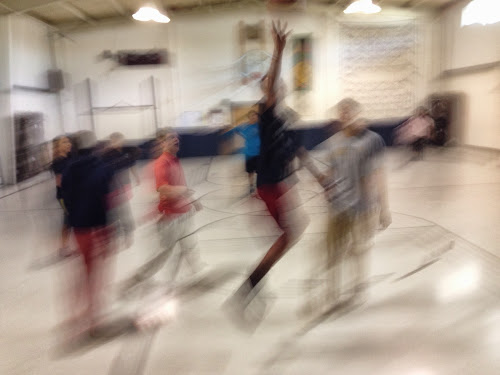 |
| Abraham Kabazie '15 composing his blog post. |
I kept this question in mind as we walked a couple of blocks to Medicine Bear, the local shelter that feeds and gives care to anybody who stumbles in the door. The other immersion students and I served lunch and sat with the people. As the morning proceeded, almost every preconceived notion we had of this impoverished community was challenged by this new encounter. The context of the conversations I had ranged from sports to government conspiracy theories, but these discussions always included something about the Blackfeet reservation, whether it be the landscape or the hardships that the community faces everyday. The visitors of Medicine Bear told us of the helplessness they feel when confronted by this seemingly endless trend of distress. These claims were reinforced by the presentation we heard from Harry Barnes, a local business owner, who explained the challenges of reservation economics and clearly put into historical context the tough spot in which the Blackfeet are forced to live. Blame is often assigned to the federal government, who had, in history, taken action to control and limit the power of all Native Americans. These events are still fresh in the minds of the Blackfeet and are always the underlying context of a discussion on the state of the reservation.
Though I still have a couple more days to discover an answer to my question, I continue to hold on to my positive experience with the students at De La Salle Blackfeet School and take in the word-illusive (description-defying; mind-boggling; breathtaking; eye-pleasing) landscape that we observe everyday on our ride to and from the school as well as the "born free" aura that is sensed at the Holy Family mission.
Abraham Kabazie '15
P.S. Hi Mrs. Graffia! I'm so glad you're back!
 |
| The dizzying pace of pick-up basketball |


